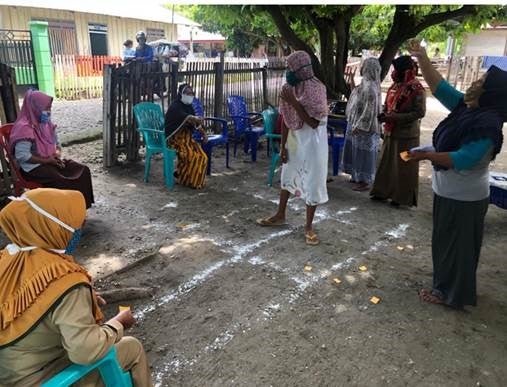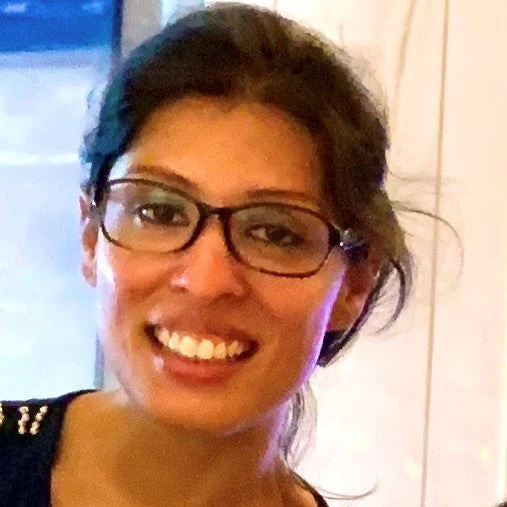 Program PAMSIMAS adalah program air pedesaan terbesar di Indonesia yang terus membangun dan telah telah memberikan akses air layak kepada lebih dari 19 juta orang dan akses ke fasilitas sanitasi yang lebih layak ke 15,5 juta orang di pedesaan Indonesia.
Program PAMSIMAS adalah program air pedesaan terbesar di Indonesia yang terus membangun dan telah telah memberikan akses air layak kepada lebih dari 19 juta orang dan akses ke fasilitas sanitasi yang lebih layak ke 15,5 juta orang di pedesaan Indonesia.
Access to water and sanitation is now more than ever a matter of life and death for many people. At a time when the coronavirus (COVID-19) has thrown many into a struggle for their livelihoods and income, it can be a crushing additional stress not to be able to protect themselves through basic precautionary handwashing.
The crisis has brought to the surface the everyday vulnerability in Indonesia, where 35 million people don’t have access to water (18% of the rural population) and 70 million lack basic sanitation (36% of the rural population), according to the WHO/UNICEF Joint Monitoring Programme for Water Supply, Sanitation and Hygiene (JMP). Regularly washing hands, drinking more water, and keeping clean are not simple precautions but a labor-intensive effort for this population. And like in many other crises, women and girls are disproportionately burdened.
Yet there have been some small wins, and the importance of steady, incremental gains must not be overlooked. The PAMSIMAS Program is Indonesia’s largest rural water program and has continued to build such gains. So far, it has provided 19 million people with access to improved water facilities and more than 15.5 million people with access to improved sanitation facilities.
Building on Indonesia’s long history of community development programs, PAMSIMAS uses a bottom-up, participatory approach to water and sanitation services. It focuses not just on providing infrastructure provision, but also on community empowerment and local government capacity building. Activities include: (1) village socialization to introduce the program (2) participatory planning (3) participatory procurement and construction and strongly emphasizes (3) post construction management by training a user group led by experienced community leaders and deploying facilitators to visit all villages every three months to report functionality of infrastructure.

The program has been successful because of its emphasis on achieving long-term sustainability by using field-level facilitators and involving local governments.
In recent phases, the program has deepened inclusion by championing infrastructure design for disability and universal access. Now, 5,021 villages in 362 districts provide universal access design for disabled, elderly, and needy groups. The demonstrative aspect for other programs has been that disability inclusion is not costly if it’s mainstreamed early in the planning cycle.
But during the COVID pandemic, PAMSIMAS, like most community led programs, has also had to adapt its implementation mechanism to continue delivering water and sanitation services, which are now more critical than ever. Ensuring continuity while protecting the staff and communities that carry out these tasks has been its primary focus.
All face-to-face workshops and training activities have been replaced with online work and phone-based communication. Nonetheless, for the villages with limited phone service, the field facilitators will still carry out door-to-door home visits while applying physical distancing and other appropriate safety measures. Construction activities will also employ physical distancing, with no more than five people in a group. In the event of a positive case of COVID among construction workers, the activity will stop. In addition, the project will finance additional handwashing facilities in public places and personal protective equipment (PPE) for community workers and project staff.

PAMSIMAS is also classified as part of the Padat Karya (Labor Intensive) by the government. Under the program, the central government will continue to transfer funds directly to community groups. The community will procure construction materials and labor locally, which could stimulate the local economy as well. The prevention and adaptation measures are made official through a government regulation (Guideline Juknis Covid 19).

Though it is still early to predict the impact of these measures and the inevitable hiccups in guideline implementation given the scale of the program, the pandemic has left little choice. The crisis is epic and sudden, but its underlying mechanisms are not new. Thus, with these measures, the government of Indonesia and the World Bank are continuing to strive to protect the poor and vulnerable so that they can effectively face the crisis.




Join the Conversation